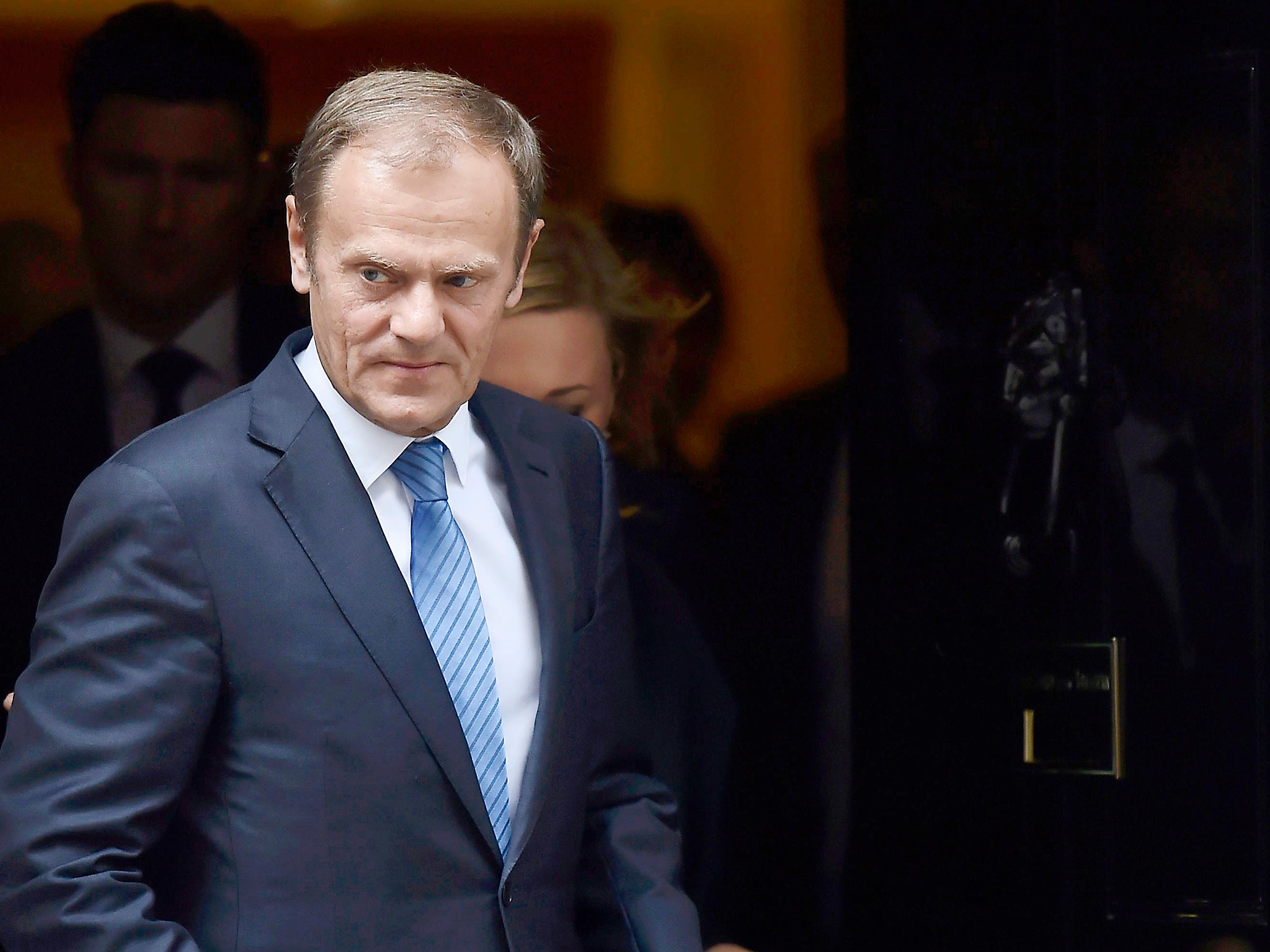Brexit: Donald Tusk says UK must settle 'people, money and Ireland' first during EU talks
'Before discussing our future, we must first sort out our past,' says European Council President

Donald Tusk has warned that the British Government must settle the issues of “people, money and Ireland” before negotiating its future relationship with the EU.
The European Council President said the UK must honour its financial obligations to the union, including a “divorce bill” of up to €60bn (£50bn), before talks over trade agreements.
Negotiations about future relations can only start once “we have achieved sufficient progress” on key exit issues, Mr Tusk said, adding: “In other words, before discussing our future, we must first sort out our past.”
The warning came before leaders of the remaining 27 EU nations meet on Saturday to agree their negotiating strategy for Brexit.
Mr Tusk was referring to issues of free movement and residency rights for EU citizens, as well as discussions over the strength of the border between Northern Ireland and the European Republic.
He said his approach was “not only a matter of tactics, but – given the limited time-frame we have to conclude the talks – it is the only possible approach”.

In a letter to EU leaders, Mr Tusk wrote: “Only once we collectively determine in the European Council that sufficient progress has been made on all these issues, will we be in a position to hold preparatory talks on the future relationship with the UK.
“I would like us to unite around this key principle during the upcoming summit, so that it is clear that progress on people, money and Ireland must come first.
“And we have to be ready to defend this logic during the upcoming negotiations.”
Angela Merkel also insisted the issues of residency, the “divorce bill” and the Irish border must be dealt with before a future relationship can even be discussed.
“Without progress on the many open questions of the exit, including the financial questions, it makes no sense to have parallel negotiations,” the German Chancellor said on Thursday.
She accused the British Government of “working under illusions” over the UK’s future status, adding: “A third-party state, and that’s what Britain will be, cannot and will not have at its disposal the same rights, or be in a better position than members of the European Union.”
Theresa May has called for talks on a future trade deal with the EU to take place at the same time as divorce negotiations on Brexit, but her plans have been dashed by European leaders.
The European Parliament has also poured cold water on the Government’s claims the UK can remain in the single market and customs union.
In the letter that officially triggered Article 50, the Prime Minister said the UK wants to agree a “deep and special partnership” with remaining members of the EU to ensure economic and security cooperation.
Discussions over the future border in Ireland, which includes the possibility of a “hard” barrier with checkpoints and customs posts, have coincided with the collapse of a power-sharing agreement in Belfast.
Despite fresh regional elections in March, Irish nationalists and unionists have failed to agree a deal to form a new executive ahead of a new deadline on 29 June.
Additional reporting by agencies
Join our commenting forum
Join thought-provoking conversations, follow other Independent readers and see their replies
Comments
Bookmark popover
Removed from bookmarks